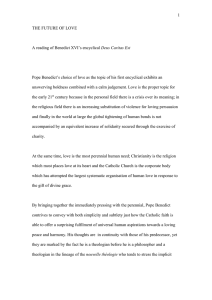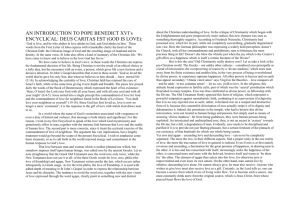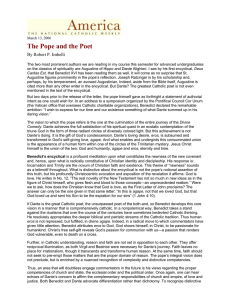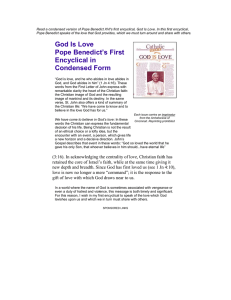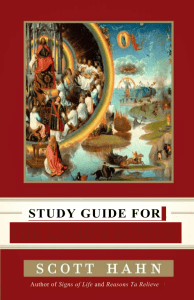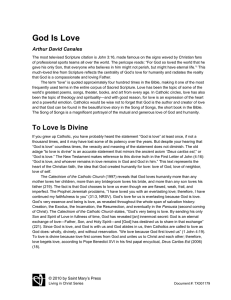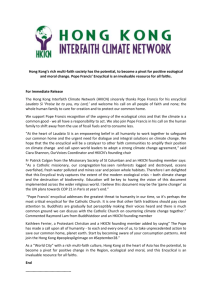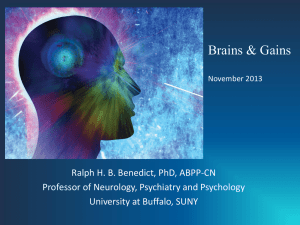Revelations of Divine Love (Feb 2006)
advertisement
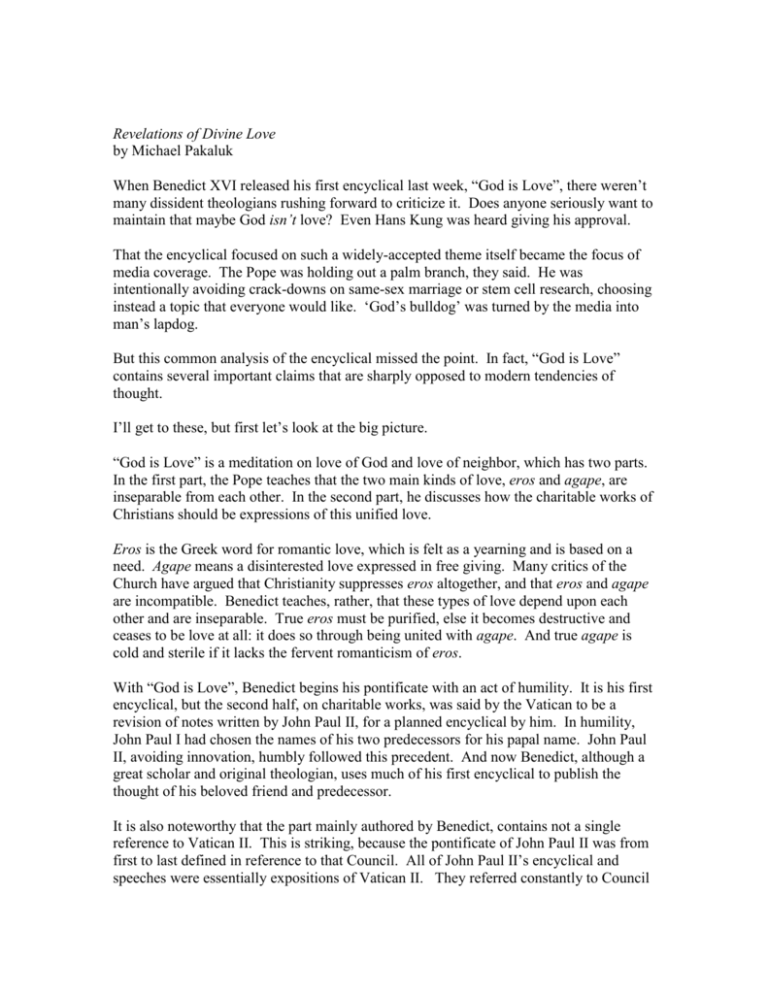
Revelations of Divine Love by Michael Pakaluk When Benedict XVI released his first encyclical last week, “God is Love”, there weren’t many dissident theologians rushing forward to criticize it. Does anyone seriously want to maintain that maybe God isn’t love? Even Hans Kung was heard giving his approval. That the encyclical focused on such a widely-accepted theme itself became the focus of media coverage. The Pope was holding out a palm branch, they said. He was intentionally avoiding crack-downs on same-sex marriage or stem cell research, choosing instead a topic that everyone would like. ‘God’s bulldog’ was turned by the media into man’s lapdog. But this common analysis of the encyclical missed the point. In fact, “God is Love” contains several important claims that are sharply opposed to modern tendencies of thought. I’ll get to these, but first let’s look at the big picture. “God is Love” is a meditation on love of God and love of neighbor, which has two parts. In the first part, the Pope teaches that the two main kinds of love, eros and agape, are inseparable from each other. In the second part, he discusses how the charitable works of Christians should be expressions of this unified love. Eros is the Greek word for romantic love, which is felt as a yearning and is based on a need. Agape means a disinterested love expressed in free giving. Many critics of the Church have argued that Christianity suppresses eros altogether, and that eros and agape are incompatible. Benedict teaches, rather, that these types of love depend upon each other and are inseparable. True eros must be purified, else it becomes destructive and ceases to be love at all: it does so through being united with agape. And true agape is cold and sterile if it lacks the fervent romanticism of eros. With “God is Love”, Benedict begins his pontificate with an act of humility. It is his first encyclical, but the second half, on charitable works, was said by the Vatican to be a revision of notes written by John Paul II, for a planned encyclical by him. In humility, John Paul I had chosen the names of his two predecessors for his papal name. John Paul II, avoiding innovation, humbly followed this precedent. And now Benedict, although a great scholar and original theologian, uses much of his first encyclical to publish the thought of his beloved friend and predecessor. It is also noteworthy that the part mainly authored by Benedict, contains not a single reference to Vatican II. This is striking, because the pontificate of John Paul II was from first to last defined in reference to that Council. All of John Paul II’s encyclical and speeches were essentially expositions of Vatican II. They referred constantly to Council teaching. Benedict, in contrast, quotes Nietzsche, Plato, Aristotle and the Church Fathers. In doing so, it is as though he is announcing that his pontificate will be devoted, not to interpreting Vatican II—for that has now been accomplished, by his great predecessor—but rather to integrating the teaching of the Council into the entire tradition of the Church and of Western thought. But what are some of the important claims of the encyclical? I mention three. 1. Marriage is linked fundamentally to monotheism: “Corresponding to the image of a monotheistic God is monogamous marriage.” There is an eros that is written into human nature by the Creator; and when this finds fulfillment in monogamous marriage, the exclusive and permanent nature of the bond testifies to the unity of God. Note that it would seem to follow from this that deviations from monogamous marriage amount to practical denials of monotheism: polygamy would implicitly assert a plurality of Gods; same-sex pseudo-marriage would implicitly deny the reality of the Creator, since it asserts, in effect, that marriage is an arrangement based purely on human decision. 2. The ultimate act of worship for a Christian, the Eucharistic sacrifice, is at the same time an act of love of neighbor. “Union with Christ is also union with all those to whom he gives himself,” Benedict writes, “Here the usual contraposition between worship and ethics simply falls apart. ‘Worship’ itself, Eucharistic communion, includes the reality both of being loved and of loving others in turn.” It follows from this, of course, that a religiosity not expressed in love for others must be false. But it also follows that, for Christians, a social activism which does not flow from true worship is false. In these remarks of Benedict one finds a program for reforming the Liturgy, on the grounds that fitting worship should be the center and source of Catholic apostolate and service. 3. The laity, not the Church hierarchy, is responsible for the reform of society. “The Church's social teaching argues on the basis of reason and natural law, namely, on the basis of what is in accord with the nature of every human being. It recognizes that it is not the Church's responsibility to make this teaching prevail in political life…The direct duty to work for a just ordering of society, on the other hand, is proper to the lay faithful.” If this teaching were put into practice, the laity would take great pains to become informed defenders of the natural law teaching of the Church, since they would regard their efforts to apply this teaching to society as their distinctive mode of service to Christ. Michael Pakaluk is a professor of philosophy at Clark University. He is the author recently of Aristotle’s Nicomachean Ethics: An Introduction (Cambridge University Press, 2005).

